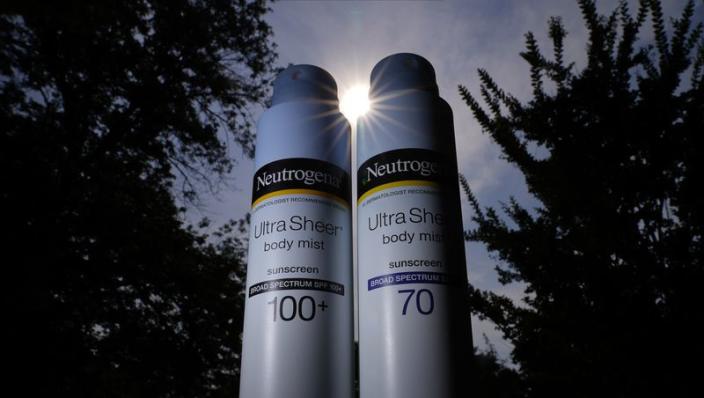Views: 0
Look, I’m quickly coming up on 30 — this very year, in fact. While I’m not afraid of aging, I do want to take good care of my skin and set myself up for success as I get older. After all, your skin is the largest organ of the body.
While I take pretty good care of my skin, there’s one part of my body that I often neglect: my neck. And as it turns out, your neck ages faster than your face. Here’s why — and what to do about it.
Why does my neck age faster than my face?
As Dr. Theodora Mauro, professor of dermatology at the University of California, San Fransisco, told The New York Times, neck skin ages “faster than almost any place else on the body.” Additionally, your neck skin is “particularly vulnerable,” said Mauro.
According to Mauro, there are a few things that can contribute to aging neck skin: “poor posture, insufficient skin care, sun exposure and the natural weakening and decline of your muscles.”
Also, the skin on your neck is less durable, making it unable to heal “as well as it does elsewhere on the body,” per The New York Times.
How do I tighten my neck skin naturally?
While most treatments don’t come with a guarantee, there are a few things you can do to potentially tighten your neck skin:
-
A skincare routine: Perhaps one of the easiest ways to begin to care for your neck skin is to have a comprehensive skincare routine. Since everyone’s skincare needs are different, you’ll probably want to consult with a dermatologist before buying skincare products.
-
Collagen supplements: According to MasterClass, you can take collagen supplements to encourage collagen production, as well as to “promote skin elasticity, and moisturize the skin.” You can also get collagen treatments in-office, per Byrdie.
-
Use retinol: According to Byrdie, retinol is a great product for firming your neck. Heather Woolery-Lloyd told Byrdie, ”It is FDA-approved for treatment and prevention of wrinkles and has decades of science backing its effectiveness.”
-
Use sunscreen: Whenever you apply sunscreen to your face, apply it to your neck, too — and often. Board-certified dermatologist Roberta Del Campo told Byrdie that using both sunscreen and retinol is important because “they are not only improving their skin quality but preventing the loss of collagen.”
How do I tighten my neck skin without surgery?
If you’re looking to tighten your neck without invasive surgery, here are some noninvasive treatments, per MasterClass:
-
Facial yoga: According to MasterClass, “Facial yoga involves stretching to stimulate the facial muscles and neck muscles.” There are multiple facial yoga routines for out there, so make sure to find one that specifically targets the neck. MasterClass recommends doing facial yoga for thirty minutes every day.
-
Neck stretches: If you want to keep things simple, try out facial yoga’s cousin — neck stretches. Per MasterClass, neck stretches simply involve “looking up at the ceiling and turning your neck slowly.” This can help tone and tighten your neck.
-
Non-invasive treatments: There are multiple non-invasive treatments that “use lasers or wave frequencies to heat the layers underneath the skin and stimulate new collagen production,” per MasterClass. These treatments include radiofrequency and laser treatments, as well as ultherapy.
-
Exfoliations treatments: Many spas offer exfoliation treatments, such as chemical peels and dermabrasion or microdermabrasion. Per MasterClass, these treatments “(peel) away the upper layers of skin to improve elasticity and smooth the appearance.”
-
Microneedling: This is probably the most invasive treatment on the list, but as MasterClass put it, microneedling is a “minimally-invasive procedure.” This treatment involves puncturing your neck skin with small needles, which “resurfaces the skin to stimulate collagen and elastin production.”
It’s worth mentioning that no matter what neck-tightening treatment you land on, results will likely vary. And if you have sensitive skin, you might want to consult with a dermatologist before starting a treatment.
Related
The best products for your neck
1. L’Oréal Paris Advanced RevitaLift Face & Neck Day Cream
Price: $14.99.
If you’re on the hunt for a cheap anti-aging cream for both morning and night, this one from L’Oréal is a great choice. According to L’Oréal, this cream “helps smooth, firm, and hydrate areas of your skin that can be prone to visible signs of skin aging, like wrinkles loss of elasticity.” It’s formulated with pro-retinol and centella asiatica and is dermatologist tested.
2. The INKEY List Retinol Anti-Aging Serum
Price: $12.99.
Retinol is a great anti-aging product, but can be harsh on skin in high percentages. According to Everyday Health, you should look for retinol serums with no more than 1% retinol — like the INKEY List retinol serum. With 1% retinol, this serum can help reduce lines and wrinkles.
3. RoC Multi Correxion 5 in 1 Chest, Neck and Face Cream with SPF 30
Price: $24.97.
Since using sunscreen is key to protecting your neck skin, why not use an anti-aging moisturizer and sunscreen all in one? This RoC moisturizer is a great option. Use it in the morning to protect your skin from the sun during the day — and you can use it on your face and chest, as well as your neck.
4. 365 by Whole Foods Market Rose Hip Oil
Price: $9.99.
If you’re looking for a much cheaper alternative, rose hip oil is a great option. As Tracie Martyn co-founder and CEO Marius Morariu told CNN, rose hip oil “contains trans-retinoic acid and a number of antioxidants,” which can help “with reducing wrinkles and supporting cell turnover.”
5. Paula’s Choice Retinol Skin-Smoothing Body Treatment
Price: $29.99.
Retinol isn’t just good for your face and neck — it’s great for your entire body, too. You can use this Paula’s Choice retinol body treatment on your neck and the rest of your body. And it has 0.1% retinol, meaning it’ll be pretty gentle on your whole body.


